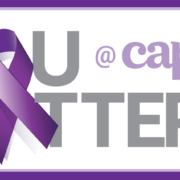5 Powerful Tips for Healthy Communication in Your Relationships
February is Healthy Relationships Month, a time dedicated to fostering connections built on respect, trust, and understanding. At CAPSA, our Prevention & Education staff works year-round to promote these values, with February being a special focus on teaching about healthy communication. Strong communication is the cornerstone of every thriving relationship, whether with a partner, friend, family member, or coworker.
In this post, we’ll explore five powerful tips for improving your communication skills. By applying these strategies, you can strengthen your relationships and create a foundation for mutual respect and growth.
1. Practice Active Listening
Healthy communication begins with active listening. This means giving your full attention to the person speaking, showing empathy, and avoiding distractions like your phone or other interruptions.
Here’s how you can practice active listening:
- Maintain eye contact to show you’re engaged.
- Paraphrase what the other person said to ensure understanding.
- Ask clarifying questions to show interest and gather more information.
Active listening not only helps you understand others better but also makes them feel valued and respected.
2. Use “I” Statements
Conflict is a natural part of any relationship, but the way we express our feelings can make all the difference. Using “I” statements allows you to share your perspective without sounding accusatory.
For example:
- Instead of saying, “You never listen to me,” try, “I feel unheard when I’m interrupted.”
This approach focuses on your feelings and needs, making the conversation more constructive and less likely to escalate into an argument.
3. Be Mindful of Nonverbal Communication
Words are only part of the equation. Your body language, facial expressions, and tone of voice all play a significant role in how your message is received.
To enhance healthy communication, consider the following:
- Keep your body language open (e.g., uncrossed arms).
- Use a calm, even tone of voice.
- Be aware of facial expressions that may unintentionally convey frustration or anger.
Nonverbal cues can either reinforce your message or contradict it, so being mindful can help ensure clarity and understanding.
4. Set Boundaries and Respect Them
Healthy communication thrives when clear boundaries are established and respected. This involves being upfront about your limits and understanding those of others.
For instance, if someone needs time to process their thoughts before a discussion, respecting that boundary can lead to a more productive conversation later. Similarly, setting boundaries about personal space, emotional availability, or preferred communication styles can prevent misunderstandings and foster respect.
5. Make Time for Regular Check-Ins
Life gets busy, but setting aside time for meaningful conversations is crucial. Regular check-ins provide an opportunity to discuss feelings, address concerns, and celebrate successes.
Here’s how to make the most of check-ins:
- Choose a time when both parties are relaxed and undistracted.
- Create a safe space where honesty and vulnerability are encouraged.
- End conversations on a positive note to reinforce connection.
Regular communication helps keep relationships strong and ensures that both parties feel heard and valued.
CAPSA’s Role in Promoting Healthy Communication
At CAPSA, we believe that everyone deserves relationships built on respect and understanding. Our Prevention Education department specializes in teaching skills like active listening, boundary-setting, and conflict resolution—all essential elements of healthy communication.
This February, we’re doubling down on our efforts to promote healthy relationships by offering workshops, resources, and community events focused on fostering open and respectful dialogue. Whether you’re looking to improve your communication skills or help others do the same, CAPSA is here to support you.
Why Communication Matters
Healthy communication is more than just exchanging words—it’s about building trust, showing empathy, and working together to overcome challenges. When communication is strong, relationships flourish.
As we celebrate Healthy Relationships Month, take the time to evaluate your communication habits. Are you actively listening? Are you setting and respecting boundaries? By implementing the tips above, you can strengthen your relationships and create a lasting impact on those around you.
Remember, CAPSA is here to help. If you’re interested in learning more about our Prevention & Education programs or accessing resources, don’t hesitate to reach out. Let’s work together to build a world where healthy communication is the norm.
Strong communication is a skill that benefits every aspect of our lives. This February, commit to fostering healthier, more respectful interactions with the people you care about. With practice and intentionality, you can transform your relationships and inspire others to do the same.
Start the conversation today. Your relationships will thank you.








